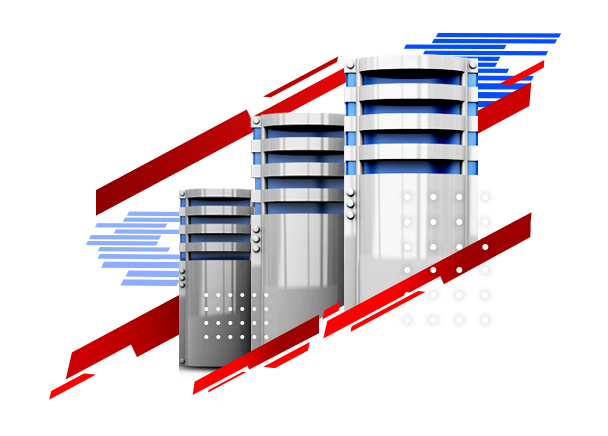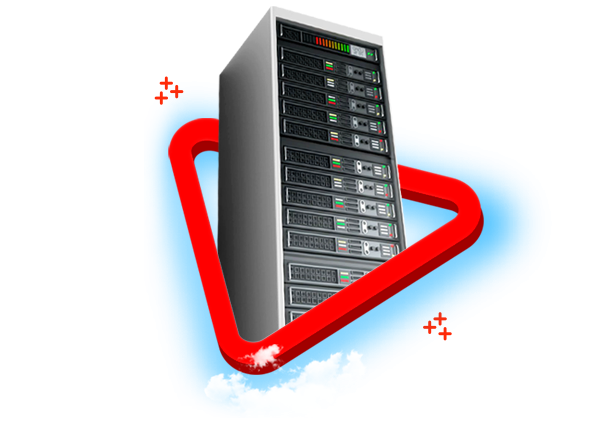
What is dynamic DNS or dynamic DNS? Or what is DNS? What is the difference between DDNS and DNS? If you’ve just launched a website and are planning to get out there, you’ve probably come across words like DNS and Dynamic DNS.
At first glance, these words may seem scary and complicated, and you may not be able to understand them well; But once you know enough about them, you’ll realize how easy it is to understand how DNS works!
What is DNS?
Table of Contents
Before moving on to the introduction of dynamic DNS, we must first understand what DNS is and what role it plays in the network.
Users access online information through the domain name of websites. Web browsers also communicate with each other through Internet Protocol (IP) addresses.
Every device connected to the Internet has a unique IP address through which it communicates with other devices. In the past, you could communicate with other devices just by memorizing this address, but with DNS, today this problem is solved and you only need to know the domain name of the websites.
In fact, DNS stands for Domain Name System, the Internet’s phone book that translates domain names into IP addresses so browsers can download resources on the Internet.
There are two types of IP addresses:
Static IP address: A unique IP address that is assigned to only one device and does not change over time.
Dynamic IP address: It is an IP address that changes periodically. In this way, every time you connect to the network, you have an IP that is assigned to other devices as soon as it is freed (or you disconnect from the network).
Dynamic IP is used when the number of IP addresses is limited and there are many users who intend to use them.
Why do we need DNS?
You might be wondering why DNS replaced consecutive IP addresses. The answer to this question is clear!
It is easier to remember the domain names of several websites than to remember their IP addresses. Also, it is important to note that the number of IPs in the world is limited, but the names that can be defined for the domains are not limited; So you can choose your favorite name for your website. Considering that several domain names can be defined in dynamic IPs and dynamically assigned to one IP, there will be no limit to creating different websites.
Another term you should learn before Dynamic DNS is DHCP.
What is a DHCP server?
The second thing you need to know about is the DHCP server. Most devices connected to the Internet use a “dynamic IP address”. This means that these IP addresses are temporarily assigned to them and have a leased status. After the lease period ends, the IP address is withdrawn from the device and assigned to another device. This is done by DHCP Server.
In fact, this server uses the Dynamic Host Configuration Protocol (DHCP) to respond to its clients’ requests for IP addresses.
Computers and servers in a DHCP network can renew their leases and can hold different IP addresses for longer periods of time. On the other hand, the DHCP server waits for requests from devices to renew the lease. This issue usually happens in the middle of the lease period and following such a request, the lease date is extended.
If the lease renewal request is not submitted, upon the expiration of the lease agreement and as soon as the device is disconnected from the network, the DHCP server will return the IP address to its own collection. When the device needs to return to the Internet again, it is assigned a new IP address.
What is Dynamic DNS (DDNS) and what does it do?
To check dynamic DNS or dynamic DNS, let’s go to a scenario. In this scenario, you connect remotely to your laptop at home. If you know the IP address of your device, you type it in the gateway program and wait for the connection to be established. This is understandable for static IP addresses.
But how can you do this if your IP address changes constantly, as it does on networks controlled by DHCP servers?
In these situations, dynamic DNS comes to your aid.
DDNS or Dynamic DNS is a service that automatically and periodically updates your IPv4 or IPv6 records as your IP address changes. In general, dynamic DNS acts like a road map, directing a domain name to a target IP address. With DDNS, this doesn’t need to be done manually; These IP changes are done by the Internet service provider.
For example, if we imagine the IP address as a number in a call center, the caller may not be able to communicate with the destination despite the number change. But with DDNS, the contact numbers are constantly updated in this system and there will be no problem regarding the communication between the caller and the destination.
What is the difference between DDNS and DNS?
Now that you are familiar with the general concept of DDNS and DNS, you can better understand the difference between these two services.
DNS is static; This means that it remains constant for a specific domain. Whereas dynamic DNS is dynamic in nature and changes every time. When using DNS, he has a domain or a fixed IP address or has assigned it to someone else. In DDNS, IP addresses are dynamically assigned to a domain. Due to the fact that the changes are made automatically, there is no disruption due to these IP changes in the network.
Both systems consist of TCP/IP protocol and both DNS and DDNS services are developed; Because users cannot remember the numerical IP address of different websites.
What are the advantages of DDNS or dynamic DNS?
Using DDNS has many benefits for you. Including:
-
accessibility
You can easily access your website or server without worry. It’s true that the IP address changes, but you don’t need to keep track of the IPs and it won’t cause any problems in your business.
-
being economic
With DDNS, you don’t need advanced equipment and expert staff to manage multiple domain names; Because with dynamic DNS, if you have many addresses, you will not have IP address conflict and you can use them at the same time. In addition, with DDNS, you no longer need a network administrator to check your settings and perform the necessary configurations to change IP addresses.
-
Being more practical
You don’t need to update DNS records every time your IP address changes, DDNS does it for you. In fact, DDNS is more practical than static DNS, which must be updated manually.
-
Higher security
Due to the fact that IP addresses are dynamically assigned to different domains in the DDNS service, network security also increases and hackers cannot easily steal information from different devices.
Who is the DDNS service useful for?
Those who want to remotely access CCTV cameras, server, VPN, various programs or game server from their computer can use this service. The cost of DDNS service is cheaper than getting a static public IP. Also, you don’t need to update all your records with DDNS setup whenever the manual IP changes.
and finally …
The question that may come to you in the end is, when should we choose DDNS and when should we go for static IP addresses? According to the things that we have brought you from Softhost in this article, the answer to this question is clear.
Whether you prefer to host your website at home on your own web server or your goal is to be able to connect to your home computer from anywhere, even if you need a unique IP address to run your programs efficiently. If you have, you should use dynamic DNS.
With this method, you don’t need to pay a high price for renting a static or dynamic IP, and you can remotely connect to your desired devices or server and run your desired programs without the need of a network administrator or technician.
Meanwhile, as always, we are answering your questions in the comments section.
CATEGORY:Blog











